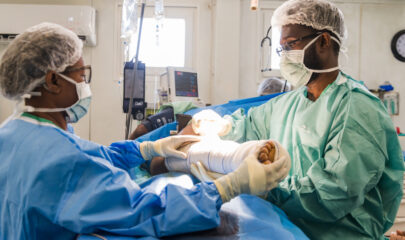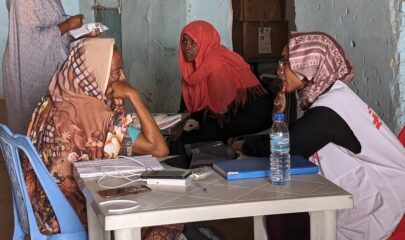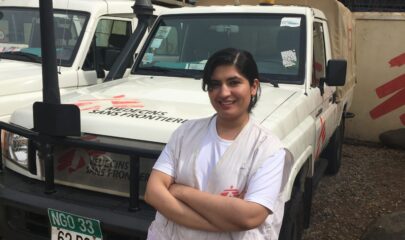“The medicines were looted.”
This is what the man in charge of a clinic in eastern Democratic Republic of Congo (DRC) tells me. For fear of retaliation, he doesn’t say by who.
Because of this, he goes on, the health facility is barely functional. Access to healthcare is limited for the town’s residents as well as thousands of new arrivals – the latter having fled violence in their home villages just days earlier.
Earlier this year, I was on a short assignment with the Doctors Without Borders/Médecins Sans Frontières (MSF) emergency team in DRC. On April 1, we received an alert that a new displaced person’s camp had formed, and that at least one child had died of suspected cholera. The next day, a small team of us loaded two MSF vehicles with medicines and left Goma, the region’s capital and our base.
Two-and-a-half bumpy hours later, we got our first look at the camp. Perched high on a hill, the sun glinted off plastic roofs of hundreds of tightly clustered shelters.
“The same violence that disrupts healthcare also increases the need for it.”
Right away, we saw evidence of people’s health vulnerability. Many children had distended bellies and orange-tinged hair, signs of malnutrition. Camp representatives told us cholera and measles had also taken hold. As I walked through narrow footpaths separating tiny makeshift structures of sticks, this didn’t surprise me. These temporary homes were supposed to house whole families.

displaced. Leontine was studying to be a nurse in Kitchanga and has been in the camp since April after she was displaced following clashes
in her hometown. Samuel, a nurse, recently fled from Masisi territory and arrived at the camp. Democratic Republic of Congo, 2023.
© Michel Lunanga/MSF
Dozens of armed groups operate in DRC and ongoing violence – or the threat of it – endangers people’s health, forcing many from their homes while interrupting medical services.
Over the three weeks I worked with the team, we learned of numerous hospitals or clinics being ransacked, medicines stolen and health staff fleeing. The same violence that disrupts healthcare also increases the need for it, which is where MSF comes in.
We respond to emergencies across the country and fill these gaps in healthcare provision – which includes everything from inpatient services to mobile clinics, sexual violence response, water provision and vaccinations.
In this issue of Dispatches, we explore ways in which marginalized communities face acute health needs and exclusion from medical services. This includes sex workers and LGBTQI+ communities in Honduras, female patients and health workers in Afghanistan and people forced to undertake treacherous journeys through Mexico in search of safety.
It is precisely in these marginal spaces – where people’s vulnerability is heightened, at times deliberately, and access to healthcare is curtailed – that MSF strives to be. Being present and relevant for communities means engaging with people in them, understanding the uniqueness of their circumstances, respecting people’s dignity and agency and above all finding ways to express our humanitarian spirit through healthcare. Thank you for being part of this.


